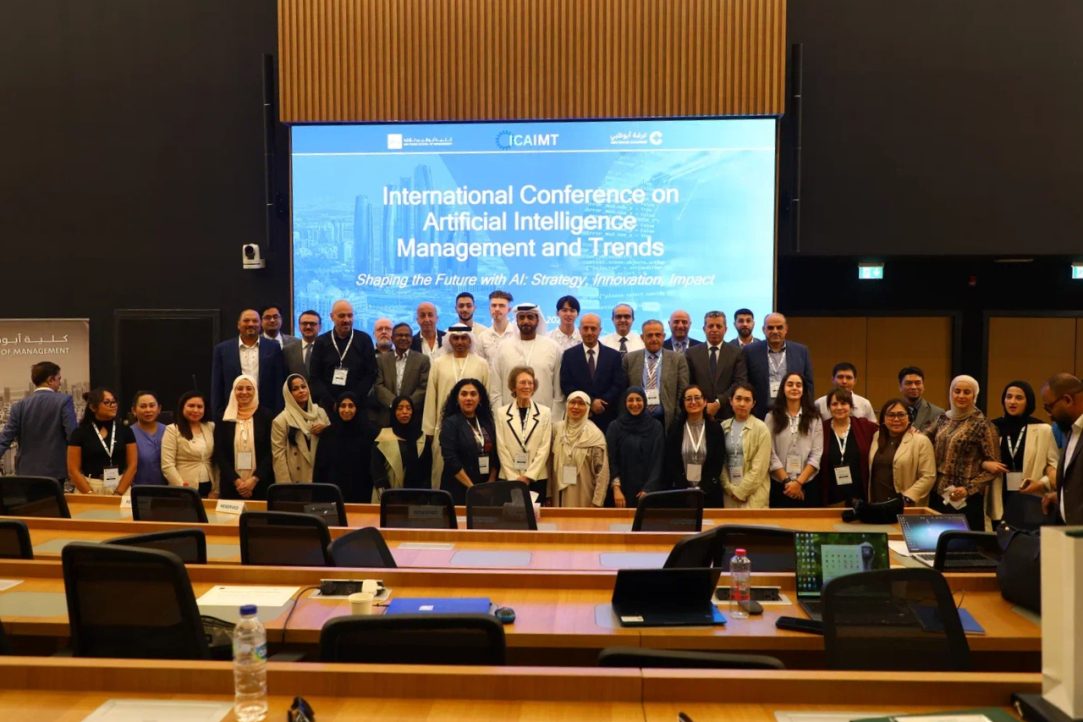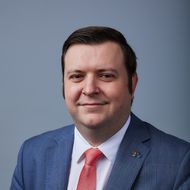Russian AI on the global stage: HSE Business School Student presents research at Abu Dhabi Conference

Strong Interest in a Presentation on Russian LLMs
The choice of topic was no coincidence. According to Arseny, he aimed to demonstrate the competitiveness of Russian AI developments:
“I compared Yandex GPT-5 and GigaChat 2.0 MAX with ChatGPT 4o and Grok 3, focusing on logical reasoning, content generation, and performance with Russian-language data. The Russian models are not inferior—and in some respects even surpass their global counterparts. What’s especially important is that I conducted a systematic comparison for the first time specifically from a business application perspective.”
The topic sparked an enthusiastic response from the audience.
“Attendees were particularly interested in how well Yandex GPT-5 and GigaChat 2.0 MAX can compete with foreign models. Colleagues asked about the future of my research, the methodology, and much more. Many emphasized the practical value of my work and its contribution to understanding global AI. That’s very motivating—it encourages me to keep going and share my findings with the international community.”
Support from HSE GSB: A Key to Success
Arseny credits his program at HSE GSB—he is currently in his first year of the Master's program Electronic Business and Digital Innovations — as playing a major role in preparing for the conference:
“The program’s focus on AI development and its application in management perfectly matched my academic interests. Courses in digital transformation and innovation helped me develop the research methodology, while project work, including building an AI bot, gave me practical skills. The support from faculty—especially from my academic supervisor Mikhail Mikhailovich Komarov—was invaluable. He became a co-author of the research and helped organize the trip. Overall, the program actively supports students in writing papers, participating in conferences, and deepening their understanding of business applications of AI. I feel that GSB offers more than just theoretical knowledge—it builds confidence and competence to step onto the international stage. This experience made it possible for me to present my work in Abu Dhabi with confidence.”
Global Agenda and Inspiration for Future Research
“The impressions from this event are overwhelmingly positive,” Arseny says.
“Although the Abu Dhabi School of Management was hosting an AI-focused conference for the first time, it brought together participants from the CIS, India, Europe, the Middle East, and Asia. It was a great platform for networking, exchanging ideas, and friendly interaction. I truly felt like part of the global academic community. After the event, we’ve stayed in touch with colleagues, and I plan to develop my research into a full-fledged academic article.”
Advice for Future Conference Participants from HSE GSB
Don’t be afraid—believe in yourself and your potential. Reach out to professors and peers for support, and make use of all the resources HSE GSB offers. I wasn’t sure I’d be able to go, but I did—and it was worth every effort. International conferences are not only an academic experience but also a chance to make your voice heard and strengthen the reputation of Russian AI on the global stage.

Mikhail Mikhailovich Komarov
Professor at HSE Graduate School of Business, Academic Supervisor of the Master’s Programs Product Management in IT Business and Electronic Business and Digital Innovations
First of all, I’d like to thank the Graduate School of Business for supporting the student’s participation in this event. The business school in Abu Dhabi is one of the leading institutions in business education in the UAE, which made it all the more valuable for our student to take part in a conference focused on AI in business. Our evaluation of Russian and international large language models showed that language specificity does matter—tasks in the model’s primary training language are solved more efficiently than those involving translation. According to other evaluation criteria, we found that Russian models are not inferior in performance to their international counterparts. In the near future, we’ll be conducting a deeper assessment of language models and will present the results in our joint publication.
